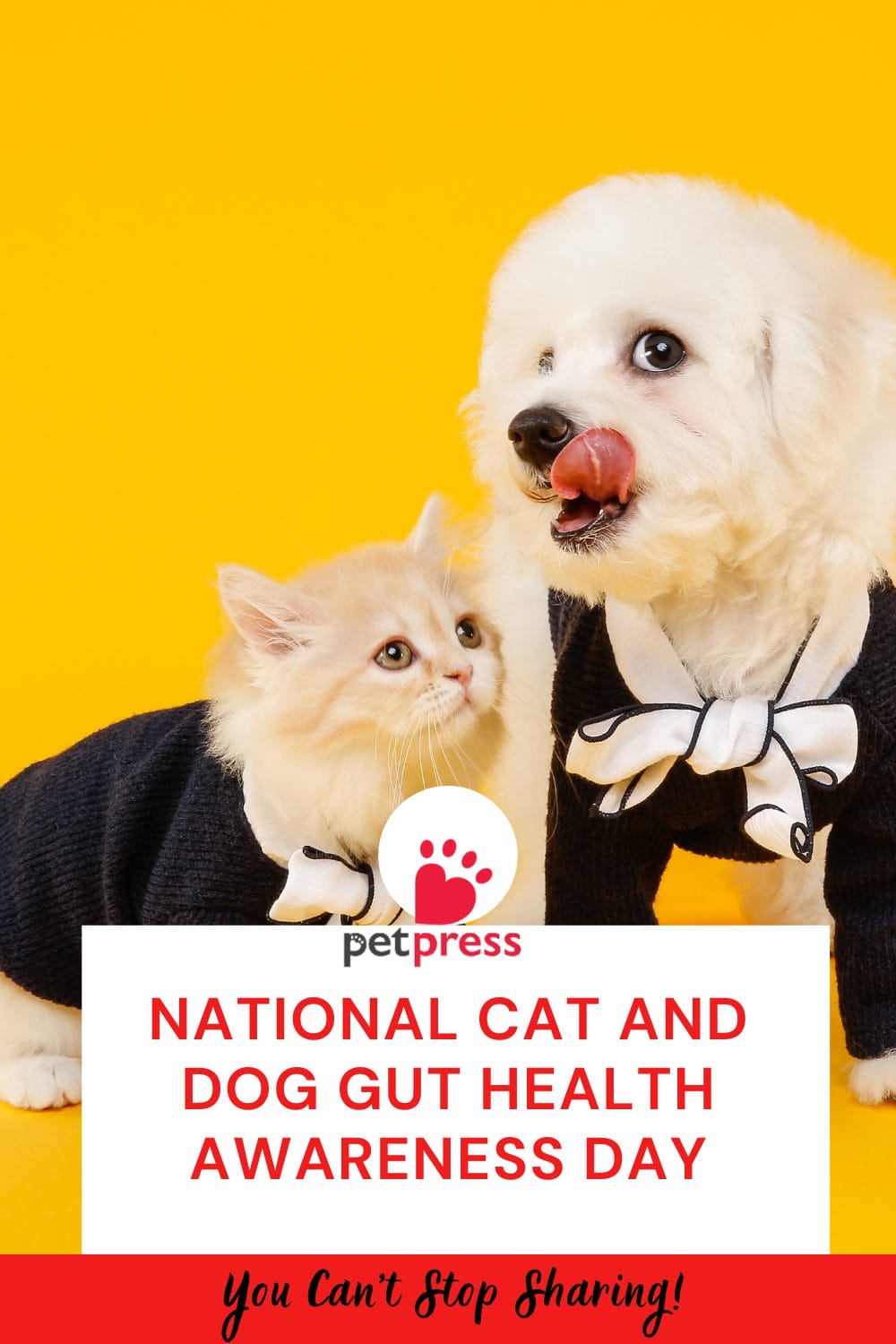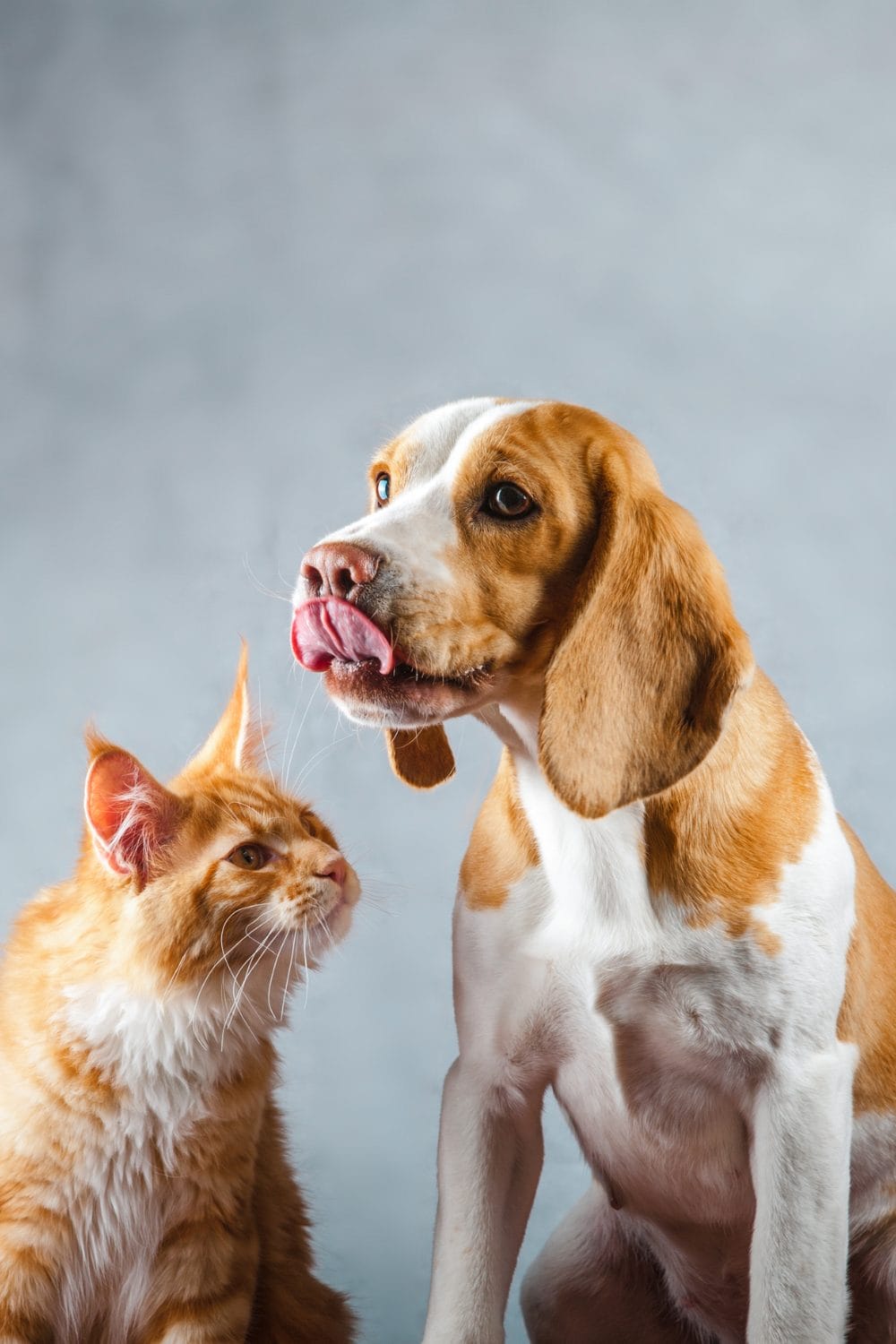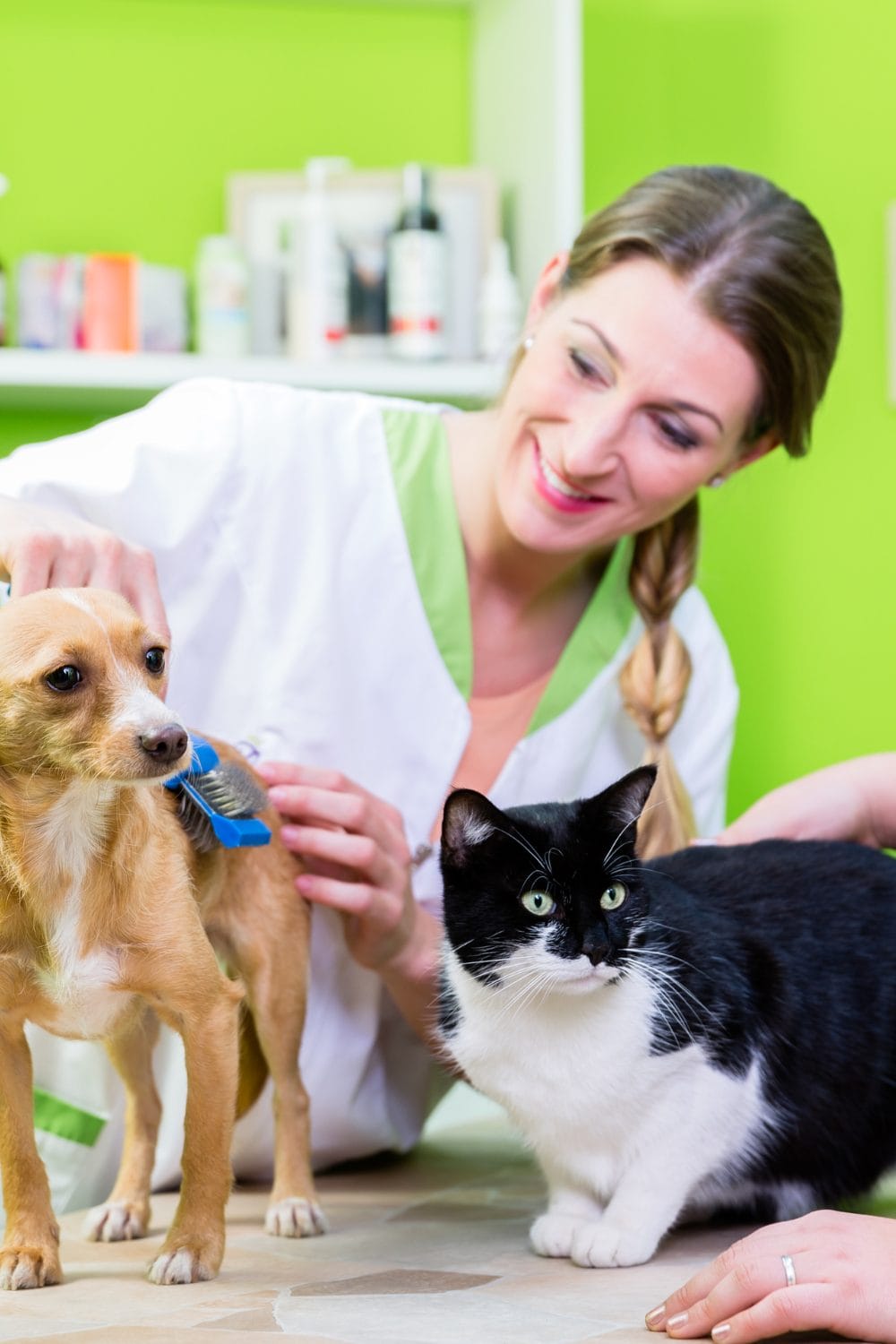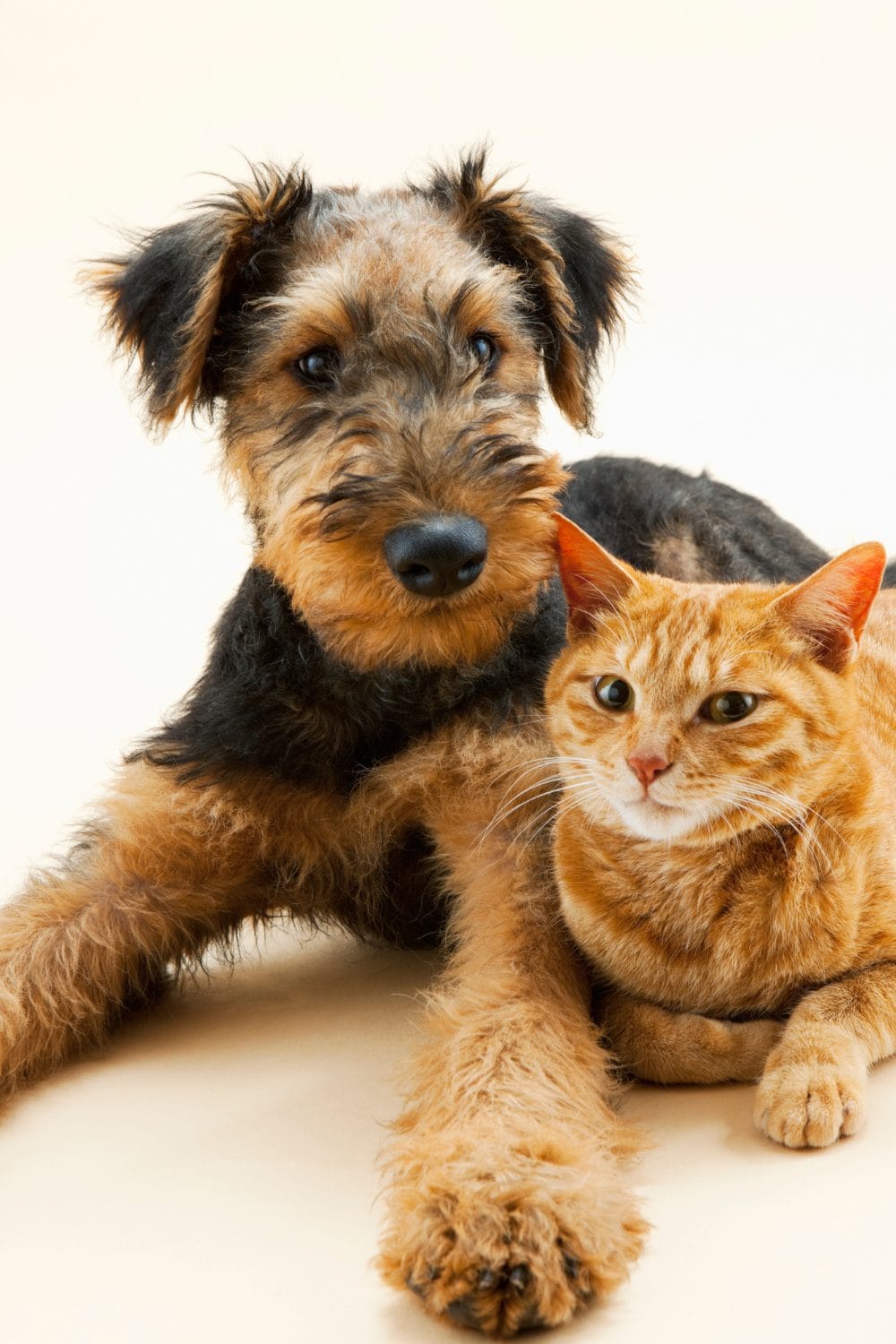
National Cat and Dog Gut Health Awareness day is important because your pet’s gut health is crucial for their overall well-being, but it’s often overlooked.
That’s why we’re dedicating this National Cat and Dog Gut Health Awareness Day, celebrated on September 21st to educating pet owners on the importance of a healthy gut and sharing tips to keep your furry friends’ digestive systems in tip-top shape.
Proper gut health is critical to your pet’s digestion, immune system, and overall vitality.
While this day might not be as well-known as some other pet observances, it serves as an important reminder of the need to pay close attention to what your pets eat and how their digestive systems are functioning.
In this article, we’ll explore why gut health is crucial for your pets, how to improve it, what foods can foster a healthy digestive system, and offer some essential tips to help your cat or dog lead a healthier life.
The Importance of Gut Health for Pets
A healthy gut is essential for your pet’s immune system, digestion, and overall health. The gut microbiome, which consists of trillions of bacteria, plays a vital role in:
- Digesting and absorbing nutrients from food
- Preventing harmful bacteria from growing
- Supporting the immune system
- Producing vitamins and other beneficial compounds
- Regulating inflammation and allergic responses
When the gut microbiome is out of balance, it can lead to various health issues, including digestive problems, skin conditions, and even behavioural changes.
Tips to Improve Your Pet’s Gut Health

Here is the list of the tips to improve your pet’s gut health naturally.
Feed a Nutrient-Dense, Biologically Appropriate Diet
Dogs and cats are carnivores that require a diet rich in meat protein to maintain optimal health.
Raw meats, organs, and bones, along with organic fruits, vegetables, and food-based vitamins, provide a nutrient-dense diet that supports gut health.
Introduce Probiotics and Prebiotics
Probiotics are beneficial bacteria that help balance your pet’s gut microbiome.
Fermented foods like raw goat milk and supplements containing live cultures can increase immune resistance against harmful bacteria and fight intestinal infections.
Prebiotics, such as fibre from sources like pumpkin, help feed the good bacteria in your pet’s gut. They can reduce inflammation and regulate bowel movements.
Avoid Unnecessary Medications
Antibiotics, antifungals, steroids, and drugs that treat intestinal parasites can all damage your pet’s gut microbiome.
Work with your veterinarian to minimise the use of these medications unless necessary.
Reduce Stress
Stress can weaken your pet’s immune system and cause inflammation, which can disrupt the gut microbiome.
Provide plenty of exercise, playtime, and affection to help your pet manage stress and maintain a healthy gut.
Stay Hydrated
Drinking enough clean water daily is essential for a diverse and healthy gut microbiome.
Dogs should drink about as many fluid ounces of water per day as they weigh in pounds.
What to Feed Your Pet for Better Gut Health?

Here are the additional pet foods for better gut health.
Protein-Rich Foods
- Raw meats, organs, and bones
- Lean meats like turkey and chicken (avoid processed meats)
- Whitefish
Fiber-Rich Foods
- Sweet potatoes
- Pumpkin
- Berries
- Collards and other dark leafy greens
- Broccoli, cauliflower, Brussels sprouts, and cabbage (finely chopped or processed)
- Mushrooms
Fermented Foods
- Raw goat milk
- Fermented turmeric, glasswort, and Ganghwa mugwort
Points to Remember
- Introduce new foods and supplements gradually and monitor your pet’s reaction.
- Avoid feeding your pet table scraps, as human foods can upset their digestive system.
- If your pet has a history of food allergies or intolerances, work with your vet to identify and avoid trigger ingredients.
- Regular exercise and stress reduction are just as important as diet for maintaining gut health.
- Hydration is key for a healthy gut microbiome.
Conclusion

National Cat and Dog Gut Health Awareness Day is the perfect time to assess your pet’s diet and lifestyle and make any necessary changes to support their gut health.
By providing a nutrient-dense diet, introducing probiotics and prebiotics, reducing stress, staying hydrated, and avoiding unnecessary medications, you can help your furry friend maintain a happy and healthy gut for years to come.
Frequently Asked Questions
Common symptoms of gut health issues include vomiting, diarrhoea, skin problems, weight loss or obesity, chronic inflammation, and even dementia.
It’s best to consult with your veterinarian before giving your pet any human probiotic supplements, as they may not be safe or effective for animals.
It can take several weeks to a few months to see significant improvements in your pet’s gut health after changing their diet. Be patient and consistent with the new diet and supplements.
Yes! Feeding a species-appropriate diet, introducing probiotics and prebiotics, reducing stress, staying hydrated, and avoiding unnecessary medications can all help prevent gut health problems in pets.
If your pet is showing signs of digestive distress, contact your veterinarian right away. They can diagnose the underlying cause and recommend appropriate treatment, which may include dietary changes, probiotics, or medication
- Dogs Pooping Blood: A 2026 Guide for Concerned Pet Parents - February 23, 2026
- How to Celebrate a Dog’s First Birthday on a Budget: 2026 Guide - February 18, 2026
- Best Shampoo for Sensitive Skin Dog Grooming: 2026 Guide - February 12, 2026


GIPHY App Key not set. Please check settings